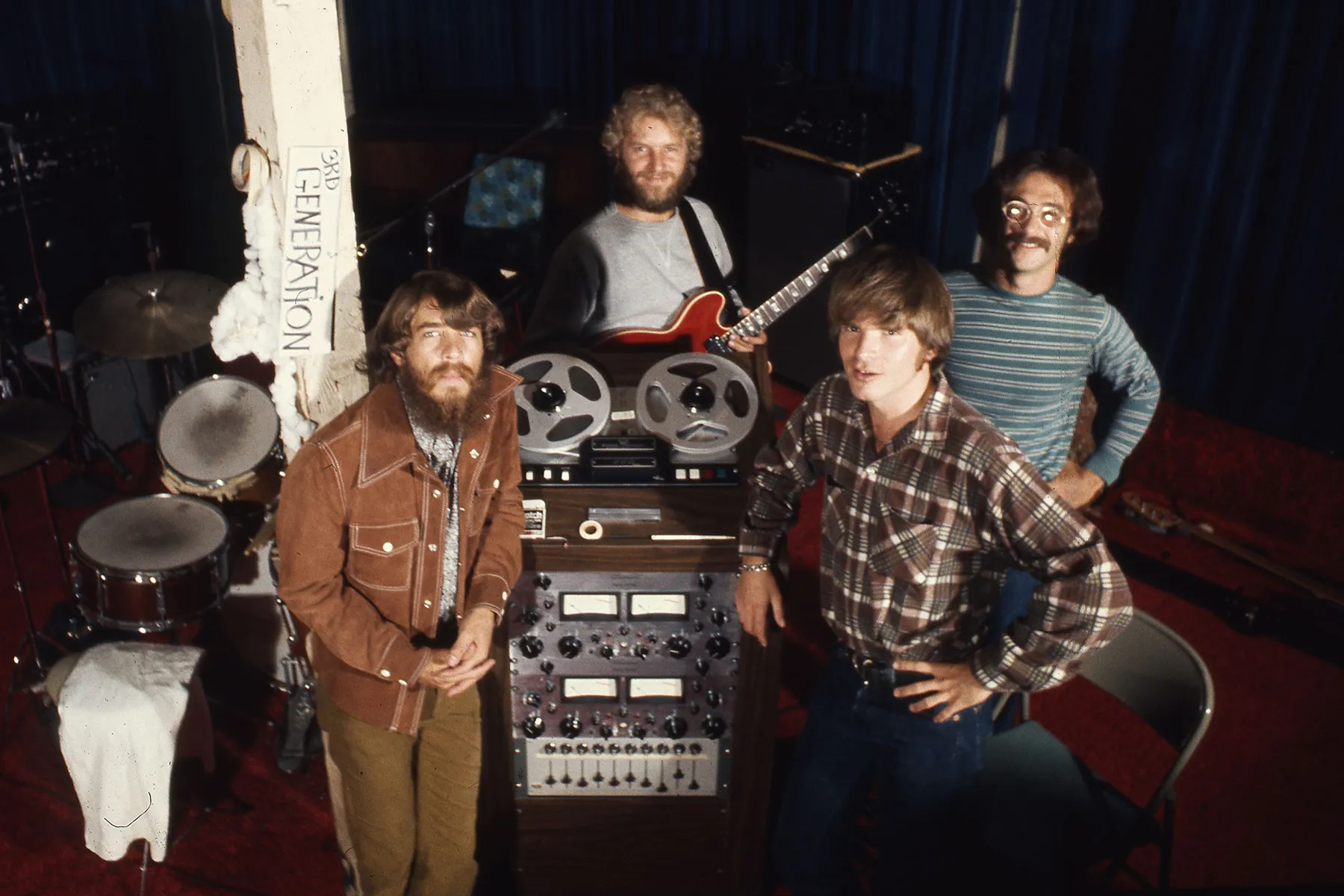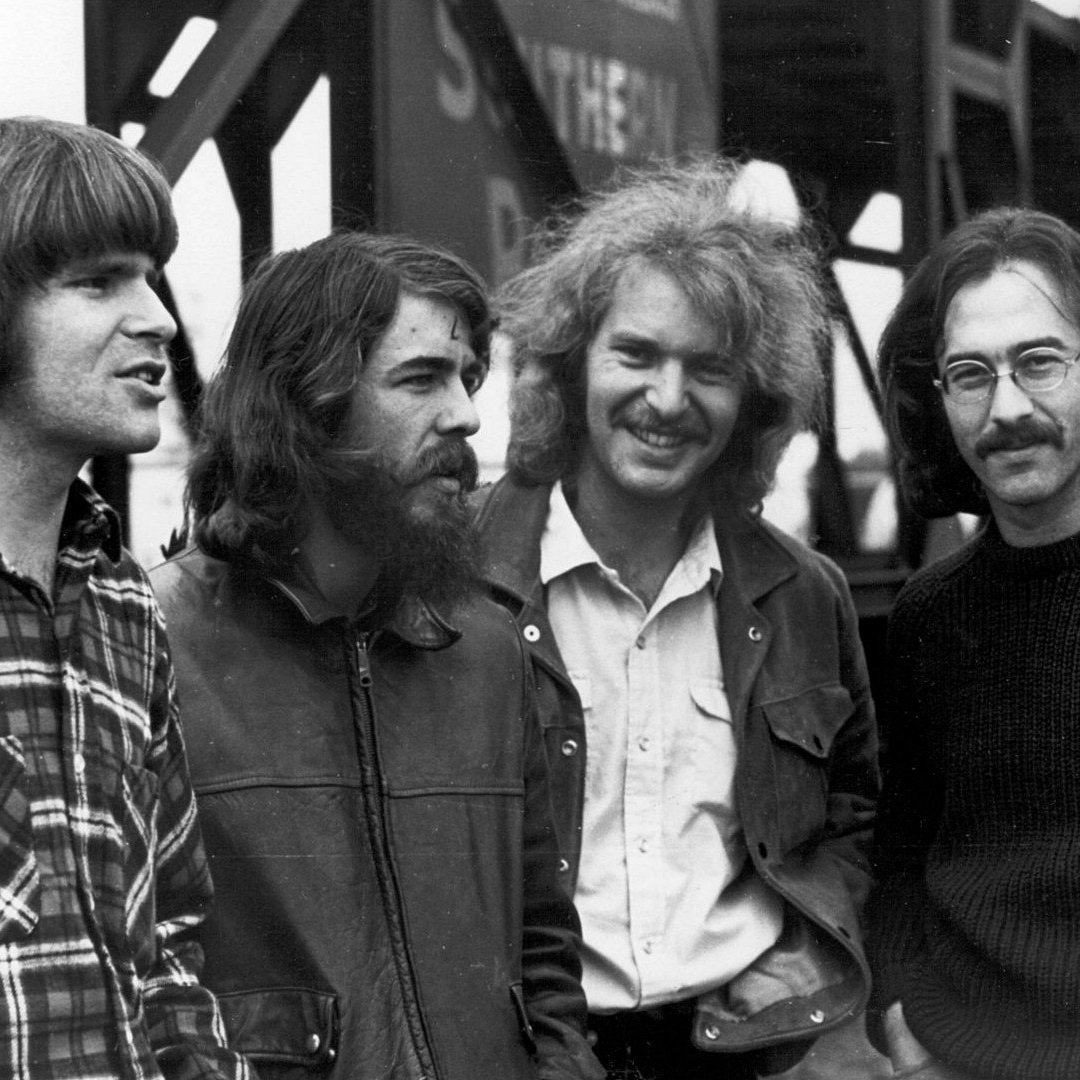
A poignant reflection on society’s turbulence and the haunting shadows of human strife.
In the turbulent era of the late 1960s, as America grappled with war abroad and social unrest at home, a profound sense of disillusionment and introspection emerged from musicians who sought not merely to entertain, but to speak deeply into the hearts and minds of a generation. One band stood apart in capturing this spirit with remarkable clarity and raw authenticity—Creedence Clearwater Revival. On their seminal 1969 album, “Willy and the Poor Boys,” they delivered a haunting gem titled “Effigy.”
Unlike some of the band’s more celebrated hits like “Fortunate Son” or “Down on the Corner,” “Effigy” did not climb high on charts or achieve mainstream radio prominence upon its release. Yet, for those who truly listened—those who allowed themselves to be carried away by its haunting melody and powerful lyrics—it became an indelible anthem of introspection and social commentary. The song’s lack of commercial chart success hardly detracts from its enduring emotional resonance; indeed, it enhances its allure as an overlooked masterpiece, cherished deeply by those who recognize its profound truths.
Penned by John Fogerty, Creedence Clearwater Revival’s primary songwriter and frontman, “Effigy” closes the album with a somber tone that contrasts sharply against the more buoyant tracks preceding it. It stretches out into nearly seven minutes of melancholic guitar work interwoven with stirring, cryptic lyrics that reflect the confusion and disenchantment of its time. Fogerty’s lyrical prowess shines through vividly as he paints a scene filled with evocative imagery, symbolic effigies burning beneath darkened skies—a metaphorical representation reflecting societal discord, violence, anger, and upheaval dominating American life at the close of the decade.
For listeners who lived through those turbulent years—the protests, the Vietnam War’s heartbreaking losses, political assassinations, and civil rights struggles—this song evokes memories both poignant and painful. It stirs emotions long buried yet never truly forgotten, bringing forth memories of friends marching in peaceful defiance, the crackling radios reporting distant battles overseas, or quiet evenings spent grappling with complex questions about morality, patriotism, and humanity itself.
Fogerty himself has kept interpretations open-ended over the decades, allowing listeners to find their own meanings within its shadowy poetry. Yet most agree that at its core lies a critique of violence perpetuated in society’s name—violence that often descends into meaningless destruction and collective despair. The refrain “Who is burning? Who is burning?” echoes hauntingly through each verse and chorus, questioning not just actions but motivations behind societal self-destruction.
Today, revisiting “Effigy” brings back that sense of restless unease familiar to many older listeners—a reminder of times when music served as more than mere entertainment; it was a mirror held up courageously to society’s troubled face. For those who first encountered this song decades ago amidst vinyl records spinning quietly in dimly lit rooms—perhaps surrounded by friends discussing hopeful dreams for better days ahead—listening again now might evoke bittersweet nostalgia intertwined deeply with contemplation.
Ultimately, while chart positions fade into obscurity alongside ephemeral popularity contests over timeframes measured now in decades rather than weeks or months after release date back then—songs like “Effigy” endure precisely because they transcend momentary acclaim. They remind us vividly that beneath surface appearances lie deeper currents shaping our collective history—currents worth examining carefully if we hope ever truly to understand ourselves better.
In its lingering sadness mingled richly with philosophical insightfulness about humanity’s darker impulses toward violence-driven symbolism stands testament firmly establishing Creedence Clearwater Revival not only among greatest bands era offered but also among music history’s most insightful chroniclers human condition itself.
